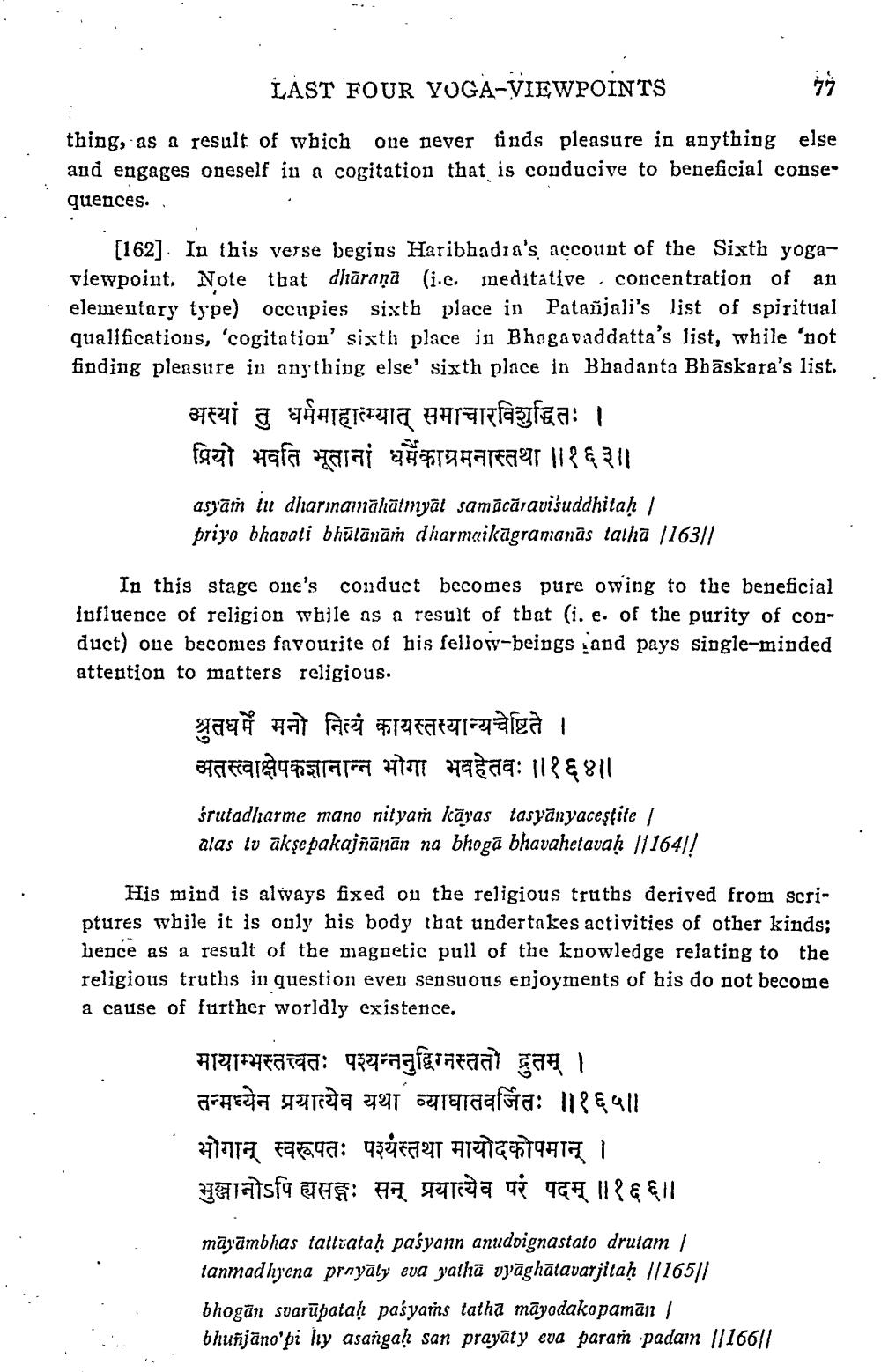________________
LAST FOUR YOGA-VIEWPOINTS
thing, as a result of wbich one never finds pleasure in anything else and engages oneself in a cogitation that is conducive to beneficial conse quences. .
[162]. In this verse begins Haribhadra's account of the Sixth yogaviewpoint. te that dharana (i.e. meditative , concentration of an elementary type) occupies sixth place in Patañjali's list of spiritual qualifications, 'cogitation' sixth place in Bhagavaddatta's list, while 'not finding pleasure in anything else' sixth place in Bhadapta Bbāskara's list.
अस्यां तु धर्ममाहात्म्यात् समाचारविशुद्धितः । प्रियो भवति भूतानां धर्मंकानमनास्तथा ॥१६३॥ asgām iu dharmamāhūtmyāt samācăsavisuddhitaḥ / priyo bhavati bhūlānām dharmaikāgramanās taina 1163||
In this stage one's conduct becomes pure owing to the beneficial influence of religion while as a result of that (i. e. of the purity of conduct) oue becomes favourite of his fellow-beings and pays single-minded attention to matters religious.
श्रुतध मनो नित्यं कायस्तस्यान्य चेष्टिते । अतस्त्वाक्षेपकज्ञानान्न भोगा भवहेतवः ॥१६४॥ śrutadharme mano nityam kājas tasyanyaceştite / alas tv aksepakajnanān na bhoga bhavahetavah ||1641!
His mind is always fixed ou the religious truths derived from scriptures while it is only his body that undertakes activities of other kinds; hence as a result of the magnetic pull of the knowledge relating to the religious truths iu question eveu sensuous enjoyments of his do not become a cause of further worldly existence.
मायाम्भस्तत्त्वतः पश्यन्ननुद्विग्नस्ततो द्रुतम् । तन्मध्येन प्रयात्येव यथा व्याघातवर्जितः ॥१६५॥ भोगान् स्वरूपतः पश्यंस्तथा मायोदकोपमान् । भुजानोऽपि ह्यसङ्गः सन् प्रयात्येव परं पदम् ॥१६६।।
māyāmbhas tattrataḥ paśyann anuddignastato drutam / tanmadhyena prayāly eva yathā vyāghātavarjitaḥ 1/165// bhogān svarūpatah paśyams tatha māyodakopamān / bhuijano'pi hy asaigale san prayāty eva paran padam ||166||




